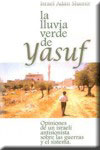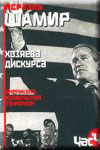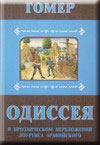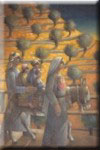Neocons, those Pseudo-right Jews For American Intervention, are bad, sure; and hopefully they are on their way out under Obama. But their dreadful twin brothers Neolibs aka Neodems, Pseudo-left Jews For American Intervention, are no better, and they seemingly will have now the upper hand in Washington , until the All-Merciful financial crisis will make American intervention a luxury they can’t afford.
You did not like interventions for oil, now we’ll have interventions for human rights. Actually, the bottom line is always the same, just explanations differ: should Afghanistan be attacked because of their suitability for oil pipeline, or because of them being conveniently placed to attack Iran , or because they mistreat their womenfolk, or because they are there; but attacked it will be.
Likewise, Russia will be confronted and attacked because it was nasty to Georgia , or because it is bad to the environment, or because it sells its oil for high price, or because they had communist tyranny, but attacked it will be. We shall write more about it later, but meanwhile, our friend David Montoute translated a review by Serrano of a book by Jean Bricmont developing this theme.
Honest and Lucid Criticism for the Western Left
Pascual Serrano, translated by David Montoute
http://www.ubnotici as.org/en/ article/honest- and-lucid- criticism- for-the-western- left
In recent years, a part of the world’s progressive community has begun to equate humanitarian interventions with the internationalist solidarity that has traditionally characterised the Left. “Humanitarian Imperialism” (Monthly Review Press, U.S. 2007) by Belgian author Jean Bricmont aims to dismantle this thinking, and does so with stunning lucidity. Power typically wields two kinds of argument to justify military interventions. One is directed at the less politicised sectors of the population that understand little about international politics. This group is exposed to fear-mongering about terrorism or the presence of dangerous weapons and dictators. But for the elites and the intellectuals, who are aware that these supposed threats are exaggerated, military action is presented as a humanitarian intervention that legitimises the right to interfere. So a great part of the Left’s ethical discourse considers the need to export democracy and human rights via the First World ’s miltary interventions, and qualifies critics of these interventions as moral relativists, indifferent to the suffering of others. Hence, it is preciely this Left that invents and interiorises “the ideology of the humanitarian war as a means of legitimation” .
To begin with, we must remember international law. The preamble to the United Nations Charter establishes as a priority the “protection of future generations from the scourge of war” for which the “respect for national sovereignty and the non-interference in the internal affairs of other States” is fundamental. Evidently, the first stage of war is sending an army to another country without that country’s consent. The idea that there are good governments –which are allowed to carry out invasions –and bad governments which deserve to be invaded and overthrown –is mistaken. We must not forget that by accepting the idea of a legitimate invasion, we are in essence authorising the law of the strong over the weak. Would Brazil (as democratic as the USA ) possibly invade Iraq to install democracy? Would we accept Syria carrying out a preventive bombardment of Israel ? And we must remember here that Syria has been attacked by Israel –such a preventive attack would have a strong foundation.
The fact that power has always presented itself as altruistic is also forgotten. Claiming that the bombardment of Yugoslavia served to prevent ethnic cleansing, or that the invasion of Afghanistan was a defense of women’s rights or that Iraq was occupied to bring democracy and liberate the country from a dictator, is not much different from the argument of the Holy Alliance against the Enlightenment ideals which inspired the French Revolution. It is not much different from Hitler justifying his invasión of Czechoslovakia ’s Sudetenland to defend the German minority there. These fervent, humanitarian, Left internationalists seem to forget that Western interventionism, which essentially means US interventionism, is the same interventionism that supported Suharto against Sukarno, the Guatemalan dictators against Arbenz, Somoza against the Sandinistas, the Brazilian generals against Goulart, Pinochet against Allende, the Apartheid regime against Mandela, the Shah against Mossadegh and the Venezuelan coup-plotters against Chávez.
The cynicism of these interventions is such that they are even presented as a defense of democracy. But if it were about democracy, they would have to listen to the constant condemnation of the non-aligned countries, representing some 70 % of the world’s population. Witness the case of Cuba , whose blockade is condemned massively by all the countries of the United Nations. If by democracy we mean listening to public opinion, here we see two clear examples of how to apply it without sending troops to any country.
To compare current interventions, however humanitarian and democratic they might seem, with historic examples of internationalism such as the International Brigades of the Spanish Civil War is, according to Bricmont, completely frivolous. When in this day and age people say “we must intervene in order to…”, it’s not as if we were going physically, as those brave and generous brigadistas did. Now, the “we” means the armed forces of powerful countries. There is no way of comparing the International Brigades’ interest in democracy with that of the U.S. Air Force, as the history of this institution shows. And of course, their bravery –many of them gave their lives- is different from ours, as we limit ourselves (with a solemn ‘we’) to pronouncing in favour of intervention from the comfort of our home sofas. According to Bricmont, there is another important difference between proletarian internationalism and the current interventionist humanism. The movements of that time, the trade unions, the anarchists, communists and socialists all shared a common interest, and understood that workers had to unite against a common enemy. But today, “in terms of political objectives, what does the Left have in common with the Dalai Lama, the Kosovo Liberation Army, the Chechen separatists, Natan Sharansky or Vaclav Havel?”. All of these, at some point or other, have had the support of the Western Left. Also, in the case of concrete solidarity involving one’s presence, the process of that intervention is subject to control, since we are its agents, as with the International Brigades. The defenders of human rights via military intervention, however, “have no influence, not even a moderating influence, over the force that they cheer on –that is to say –the US army”.
Another error is to believe that a democratic society will guarantee that its military presence in other countries will be respectful of human rights. But from the colonial era to the current invasions, with their use of torture and the Guantánamo gulag, reality has proven this to be false.
There is a frequent appeal to Nazism and the Second World War as an example of passivity when faced with dictators. The lesson that we are supposed to have learned is that appeasement is ineffective. But in reality, what occurred with Nazi expansionism was precisely what we are allowing now, that a country can invade, armed with the altruistic argument that it’s doing so to protect particular national minorities. It is for this reason that the United Nations was created, so that the war of all against all, under pretext of defending ethnic minorities, would never again be launched.
The mistake is to believe ourselves so superior that we have the right to violate the United Nations’ foundational charter and ignore other countries’ sovereignty. It’s true that human rights are universal in nature, but we demand that Third World countries respect the human rights that we never respected when we were at their same level of underdevelopment. We are incapable of understanding that police corruption will never disappear if the police don’t earn enough to pay their way, nor will their be an end to illegal crops if peasants starve to death growing corn. Neither is the lack of a free press a concern if they can’t read or write and if thousands of children are dying daily for lack of food. This fact, which would have been obvious to the Left only a few decades ago, has now been forgotten, an obvious victory for the neoliberal concept of human rights. Western intellectuals never tire of repeating that Third World nations must resolve their differences as do those of the First World, without understanding their underdevelopment, one which should be compared to that of Europe and the United States many years ago. So China ’s developmentalism (workplace exploitation, child labour… ) is the same as England ’s was in the time of Dickens. We forget that our wealth, comfort and democracy is based primarily on an exploitation of natural resources that would be unviable if the rest of the world were to practice it. We want China to respect human rights as we do, but are frightened by the idea of them consuming as much milk and cereals as we do, because this would destabilise the world market. Additionally we forget that none of the abuses and violations of the Third World are comparable in cruelty with those committed by rich countries during the colonial era.
Even when some of these left-wing intellectuals try to stand beyond good and evil, with their equidistant “neither Milosevic nor NATO” or “neither Saddam nor Bush” positions, they imply that opposing NATO bombardments or US invasions requires the express denunciation of those regimes, so that they will not be interpreted as defending them –whereas the only relevant argument here is the violation of international law by the invading power.
Jean Bricmont believes that the Left is falling into a moral absolutism in placing itself beyond good and evil. It does not wish to “get its hands dirty” and limits itself to a series of good intentions in order to avoid all error (open borders, guarantee of full employment…), and that this occurs at the expense of offering any concrete alternative in the real world. “Obviously, if we don’t do anything that can have an effect upon reality, we run no risk of doing wrong and we don’t have to worry that they will accuse us of supporting Stalin or Pol Pot”. And of course, with this perfectly immaculate and impotent morality, the Left allows itself the luxury of finding faults in a vociferous Chavez, a personalist Castro, a too-accommodating Lula, or in any progressive leader that feels the need to have his feet on the ground (this being his defect).
It is in this vein of “getting his hands dirty” that the author proposes “defending the lesser evil, international law, against US hegemony ”.
Even when left-wing intellectuals publicly express their support for the lesser evil, he says, it is not obvious what this support consists of , since no distinction is made between active and passive aid. Since “the majority of us have neither arms nor secrets to deliver to the causes we sympathise with”, our “support” is sentimental, as merit-worthy and sacrificial as that of the football fan on the couch with a can of beer in his hand, shouting for his team. This habit derives from the times of the Communist International, when a revolutionary centre listened to and disseminated our opinions across the world, something which is now defunct.
According to Bricmont, “a minimum level of modesty would help us understand that far from helping a resistance that doesn’t ask us for anything, it is the resistance that helps us. After all, this resistance is far more effective in stalling the US military machine, at least temporarily, than the millions of demonstrators who marched peacefully against the war and unfortunately failed to stop the bombs or the soldiers” of their own nations. But Bricmont makes it clear that he is not in favour of staying at home and “taking up gardening”. “Why is it that the people who criticise our inaction in Rwanda , where around 8.000 people died every day for one hundred days, do not feel responsible for the same number of people dying in Africa every day, throughout the year, due to easily preventable diseases?”. There is a difference between intervention and cooperation, and to change our mentality, it would require more modesty and less arrogance. Our pride leads us to believe that the First World is able to sort out the world’s problems. From this arise dilemmas such as the reigning chaos in Iraq making a withdrawal of occupation troops seem unadvisable. However “it would be much more realistic to admit that we don’t have the solutions to everyone’s problems and consequently, the best we can do is to stay out of their affairs”. Therefore, the recommendable option would be “peaceful cooperation, non-interference, respect for national sovereignty and conflict resolution through the mediation of the United Nations”.
His conclusion is that “the ideology of intervention in the name of human rights has been the perfect instrument to destroy pacifist and anti-imperialist movements”. Faced with these invasions, human rights organisations ask that the invaders respect the laws of war, instead of denouncing the illegality of the invasion. It is like asking a rapist to use a condom.
But in spite of his strong criticism, the conclusion at the end of the book gives cause for hope. The media and the dominant intellectuals are not as powerful as they once were. They lost the referendum on the EU constitution in France , they lose every vote in Venezuela and in the United States they have not managed to stop the majority of the population from opposing the invasion of Iraq . We only have to contrast the ease with which the US deposed Mossadegh or Arbenz in the 1950s with what it is costing them to control Iraq today, not to speak of turning things around in Venezuela or Iran . Ultimately, I cannot resist citing his final parragraph: “Everyone who prefers peace over power, and happiness over glory, should be grateful to colonized peoples for their civilising mission. By breaking free of their yoke, they have made Europeans more modest, less racist and more human. Let us hope that the process continues and that the US is forced to follow suite. When our cause is unjust, defeat can be liberating”.






















